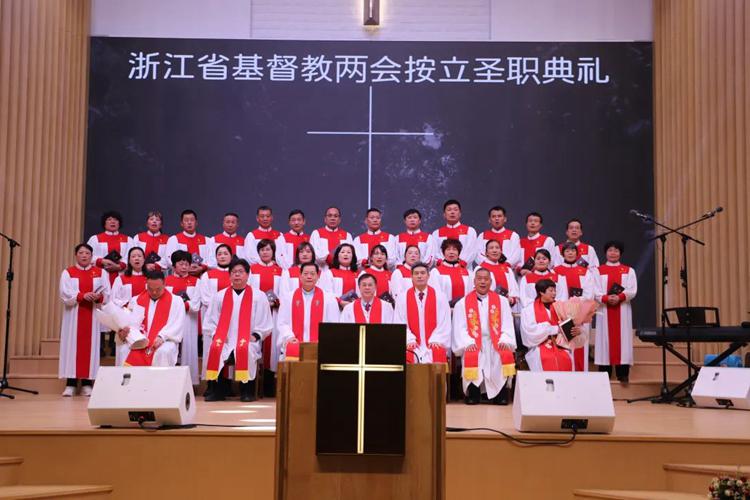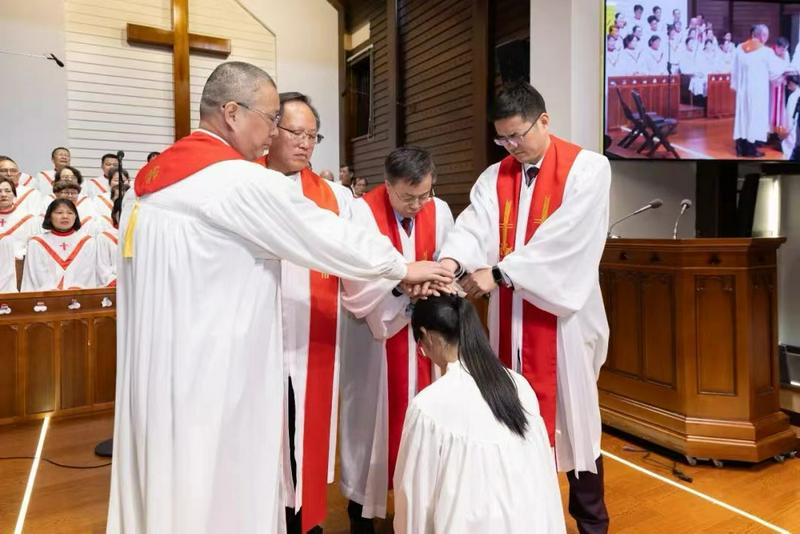The ordination of pastors does not simply mean an increase in the number of "shepherds," nor should it be seen as a solution to the issue of "too many sheep and too few shepherds" in the Chinese church. Pastor X from a church in East China emphasized that clear ordination standards are essential for standardized management and reflect the inevitable direction of the church's institutional development. However, he noted that the essence of being a true shepherd lies in a mature spiritual life, a firm calling to ministry, and genuine recognition from both the church and the congregation.
The China Christian Council and Three-Self Patriotic Movement (CCC&TSPM) issued the "Regulations on the Recognition of Christian Clergy in China," after which provinces formulated their own ordination standards. In recent years, some pastors, particularly at the grassroots level, have expressed concerns about the small number of ordinations and delays caused by non-compliance with the standards. They argue that the unhealthy phenomenon of "withholding ordination" reflects overly rigid requirements, equating management with control. However, Pastor X pointed out that according to data from his province, the number of ordinations has actually far exceeded the level prior to the introduction of these standards.
He explained that, beyond academic qualifications, the long-standing "experience requirements" set by churches are no less stringent than those outlined by CCC&TSPM. The "Regulations on the Recognition" stipulate that pastors must have two to three years of pastoral experience, depending on their academic background. However, local CC&TSPMs, and especially local churches, often impose stricter requirements, such as five to seven years of service or even longer.
"The regulation was originally intended to ensure the overall quality of ordination," he noted. "If all theology graduates who meet the basic standards were ordained immediately, the number of clergy would rise sharply, the quality of pastoral care would be difficult to maintain, available positions would be limited, and management would become more challenging." For this reason, local churches and CC&TSPMs generally submit ordination applications in batches.
However, when some pastors measure ordination solely by external, quantitative standards and pursue the title of pastor without deeply embracing the responsibilities and mission of ministry, tensions can arise. Pastor X recalled that his church once had a co-worker who repeatedly applied for ordination and persistently submitted documents. Despite senior pastors' advice not to rush, he insisted, "I'm not anxious; it's just that my classmates have already been ordained." He even claimed to have contacted the higher-level CC&TSPM, demanding a response from the church within a set timeframe and threatening to file a complaint.
Pastor X acknowledged that while delays in ordination do occur in certain places, situations such as this call for caution. "Some young preachers believe that simply graduating from seminary and serving a few years naturally entitles them to ordination. This utilitarian approach has strayed from the true purpose of the pastorate," he said.
He stressed that, whether volunteering, ministers, elders, or pastors, those genuinely called by God and faithfully shepherding the flock should be respected. Ordination, he explained, is primarily carried out for sacred ministries such as baptism and Holy Communion. His own church, with about 2,000 members, has several core pastors in their forties who graduated from seminary more than a decade ago. They never actively applied for ordination, believing themselves not fully prepared and seeing no urgent need in the church. "We have always believed that the office of pastor is a profoundly serious calling," he said. It was only after a believer asked the elders' council why they had not been ordained for so long that they accepted the advice and submitted applications.
Elder C, who leads small-group pastoring in a county church in central China, has served as a pastor for more than ten years but has not been ordained due to educational requirements. He maintains that preachers, commissioned by the laying on of hands upon seminary graduation, are no less called or authorized by God. Formal ordination, he emphasized, neither diminishes nor enhances that calling. Pastors, he said, should take a balanced view of ordination: "neither resisting it nor pursuing it for its own sake, and certainly not allowing it to become a source of pride or discouragement."
Both pastors agreed that the decisive factor is not external qualifications, but whether one is truly called by God to the ministry.
Pastor X noted that while some pastors clearly discern their calling during seminary, many require years of ministry to confirm it. In the course of pastoral work, he explained, pastors inevitably face trials and challenges that require spiritual maturity. "If someone lacks clarity about their calling, they are likely to give up when setbacks arise. But a pastor who is truly called will persevere, relying on God, no matter how difficult the circumstances," he said.
He further emphasized that a pastor aligned with God's will must also receive the affirmation of the congregation. The church's ordination system addresses this principle by requiring a vote at the members' representative assembly, thereby institutionalizing this spiritual requirement.
According to Pastor X, once a mature co-worker submits an ordination application, the members' representative assembly votes on it, and the results are publicly announced. Believers who object are free to raise their concerns with the church. The ordination ceremony is then held during a Sunday service. He explained that this process of voting and public announcement not only enhances transparency but also gives congregants a sense of participation and ownership, embodying the spiritual principle of self-governance within the local church.
In conclusion, Pastor X emphasized that to ensure the true value of pastoral ministry, local churches often set higher standards for ordination. While affirming the legitimacy of established procedures, they also stress that a pastor's spiritual character and effectiveness in service must be recognized by both the congregation and the church. More importantly, he noted, a pastor's calling must be confirmed and strengthened through the testing of real-life ministry.
Originally published by the Gospel Times
- Edited by Katherine Guo and translated by Poppy Chan













